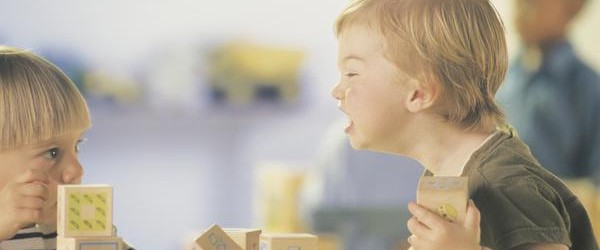In groundbreaking work that she began in the 1960’s, Diana Baumrind showed that there are systematic differences in the ways in which parents approach the task of parenting, and that different parenting styles affect children in different ways. Since that time, research has identified at least four broad styles of parenting. Parents differ in two basic dimensions: the degree of demandingness and responsiveness. Demandingness refers to the extent to which parents set and enforce high … [Read more...]
How Different Parenting Styles Affect Children’s Development
In her original research program, Baurmind studied the relationship between different parenting styles and the development of what she called instrumental competence in children. Instrumental competence refers to the extent to which children are generally competent in four basic modes of behaving: social responsibility, independence, achievement orientation and vitality. Socially responsible children are able to get along well with peers and adults. They are friendly with others, cooperative … [Read more...]
Authoritative Discipline in Five Easy Steps
Four-year old Noah wants the teddy bear that his sister Lauren is playing with. He asks her, “Can I have the Teddy?” When Lauren says, “I’m not done yet!” Noah grabs the bear from his sister. Lauren begins to cry. Eight-year-old Elizabeth is done playing with her trains. She leaves her trains in the living room and goes into the kitchen for a snack. Her mother asks her to pick up her toys and put them away. Elizabeth says, “In a minute! I’m hungry”. Twenty minutes later, … [Read more...]
It’s Time to Reclaim Parenthood
By Michael F. Mascolo, Ph.D. Over the past half-century or more, we have witnessed (a) increasing levels of narcissism, self-focus and self-entitlement among youth; a decreasing sense of (b) purpose and moral character; (c) increasing difficulties in coping and emotional regulation; and (d) poor academic work ethic and achievement. During this same period, there have been changes in how we raise our children. In particular, we have experienced a cultural shift from adult-centered to … [Read more...]
Child-Centered Parenting: Good Intentions Gone Wrong
The child-centered approach to parenting was born of good intentions. It was meant to provide an alternative to the traditional adult-centered approach to parenting, which was considered to be overly authoritarian, and indeed often included physical punishment. In the adult-centered approach, parents take the lead in setting family rules, making family decisions and enforcing maturity demands. While there are many forms of parent-centered child rearing, they all embrace the idea that … [Read more...]
Little Monsters: How Child-Centered Parenting Creates Self-Absorbed Children
When we love someone, we want to take care of that person, nurture her, and give her the best that we can. We want our loved one to feel good rather than bad. We want to give to our loved ones and protect them from hardship and bad experiences. A good parent, of course, loves his or her children. Loving our children, we experience all of the feelings that typically occur when we love someone. We want to take care of our children, nurture them, give them the best that we can. We want … [Read more...]
Child-Centered Parenting Promotes Self-Interest over Moral Purpose
Americans have always had ambivalent feelings about authority. After all, the United States was founded on the principle of freedom from arbitrary authority. The founding fathers wanted to break free from what they took to be the arbitrary authority of the British Crown. American citizens are self-determining individuals with rights that cannot be violated either by government or by other citizens. These rights to “life, liberty and the pursuit of happiness” are inscribed in the … [Read more...]
Child-Centered Parenting Promotes Praise-Seeking Rather Than Self-Cultivation
American parents bestow a lot of praise on their children. We do so out of the mistaken belief that self-esteem is a prerequisite for success in any given activity. The theme song for Arthur the Aardvark states this quite succinctly: “Believe in yourself, cuz that’s the place to start!” Parents and educators have taken this message to heart. If success starts with believing in ourselves, then it is necessary to praise children’s actions. Parents tell their children that their drawing is … [Read more...]
November Contest!
Enter to win tickets to Boston Ballet's Nutcracker Deadline: November 17th! Performances: November 29-December 8 All prizes are awarded courtesy of North Shore Children & Families, and in partnership with select sponsors. Please – only one entry per family. Several winners will be selected. Your entry gives us permission to publish your name in a future issue. … [Read more...]
The Good News: We Already Know How to Meet these Challenges
Parents who fear that the inculcation of moral values will rob children of the freedom to choose their own beliefs are likely to produce children who lack a moral compass. Children of parents who express their love by indulging their children’s wishes tend to become narcissistic and self-focused. Parents who protect their children from experiencing negative emotions tend to produce children who are unable to cope with emotional stress. Adults who worry that too much direction or critical … [Read more...]























